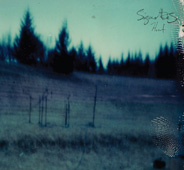This Too
"Behold, I am making all things new."
Revelation 21:5
Since about the year 2000, when I began to be a part of the New City Community in Knoxville with some regularity, I have been increasingly immersed in dialogue about and surrounded by the action of redeeming culture. In my own cynicism toward the church, an attitude which I have regretfully done more to disseminate than I have to debunk, I neglected and sometimes rejected the idea that the Western church and her often silly sub-culture could even be redeemed. To me, she was a grown woman, holding the scruffy remnants of old gaudy dresses over her figure in the looking glass, fantasizing about the glory days. I still speak sometimes as if I'm not a servant on this storm-tossed ship, as if I'm not terrorized enough by billows and gales to wake Jesus in the bow and scream, "Do something!"
In our seeking for a church, in our strained and distracted attempts to listen for the quiet breath of the Holy Ghost, Kat and I have walked through expressions of corporate worship like wings in an art museum. We have sung, studied, taken communion, prayed, supped, rejoiced, and lamented with people from a couple handfuls of backgrounds. In all of them, I have seen the working of Christ. I have seen the rivers of grace flow through hearts, clearing the jetsam of flood and storm until the banks are clean. It has been humbling to watch the limits that I imagined for God's grace fall.
This past two weeks, we have attended a church that, for all practical purposes, puts on a rock concert every Sunday. Now, I don't use this terminology lightly, having been to enough rock concerts to know the difference. But when, to go with your music, you break out the fog machine, the gobos, the down-looking-up camera angles, and did I mention the fog machine, you have a rock concert. My inborn distrust of all things done in Dog-and-Pony-show style has put the rock show as corporate worship experience fairly low on my list. Now, I've taken part in good preparation and worship with a back beat. I've even taken part in the rock show as worship, especially at student retreats. And musically, I worship more easily with an instrument in my hands. So this probably sounds quite hypocritical. In truth, that's accurate. But it's not accurate for the reasons you might think. More than condemning something with my words and blessing it with my actions (which is a way of further crippling the culture), I have doubted the power of God to redeem, to "seek and to save that which was lost."
Standing in the auditorium today, I couldn't help but hear him say, "This too, shall be made well." And now I can't help but remember Paul telling Titus that "to the pure, all things are pure, but to those who are corrupted and do not believe, nothing is pure. In fact, both their minds and their consciences are corrupted. They claim to know God, but by their actions they deny him. They are detestable, disobedient, and unfit for doing anything good," and also speaking about those "having a form of godliness but denying its power." (2 Tim 3:5)
So God is the God who redeems fog machines. And gobos. And for those of you who don't have a clue what a gobo is, next time you see a spinning light design on the back wall or the stage floor, you'll know. Now, if we could just get some in every house church in China, the world would be a better place.









